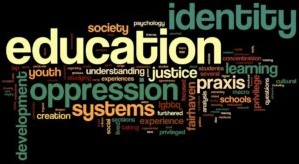Stereotyping Our Youth
Child Development Core Story, Pt. 2: Serve and Return
Serve and return is the idea of child-adult interactions rather than leaving the child with an independent activity at a young age where development is top priority. The largest developmental period for a child is from brith to age 4 and this is because this is where the child’s foundation is being built. Without serve and return within the first four years of the child’s life, then it becomes very difficult for the child when they must enter school at the age of 5. They commonly lack social skills, do not focus as easily, and very often cannot control their emotions or do not know how to express their emotions properly.
Although the idea of serve and return makes it seem like the parent must be the adult the child is interacting with, that is not the case. It could be family, friends, daycare providers, or even neighbors. Just because the parent is spending less time with their child that does not mean that they lack adult interaction. There are a large group of adults in every child’s life that help with the idea of serve and return as well as their development.
End Adultification Bias
While watching this video, I came across many stereotypes that were given to black girls. The one that stood out to me the most was that they are too loud. This in tern then makes them aggressive, threatening, angry, or disrespectful, but when a white girl is loud it is most often a personality trait. When I was thinking about this one all I could think about was all the negative it connects with a black girl but if the person were to be white most often times it connects them with positive things such as passion.
Another stereotype that this video focused on was the idea of where the child was brought up. The stereotypical black child is raised in poverty which brings a bunch more stereotypes with it such as drugs, crimes, and violence just because thats where they were raised. But at the same time not all black children are raised around these things, and white children are also raised around these things but because they are white they are assumed to not be a part of this said things.
Memory / Personal experience of prejudice as a young person or adult
Growing up I was always very athletic, played almost every sport and was on multiple teams at a time. But this then exposed me to a lot of prejudice about how it made me too rough and I should have to participate with the boys when it came to things such as gym class.




Thanks for your post Abby. I appreciate your analysis of the "serve + return" video. The video assumes that parents are the only adults interacting with young children and also uses some accusatory/blaming language for talking about how parents fall short (plopping them in front of the TV, lacking positive attention, etc.). I had been thinking about how this language is stigmatizing, but not about how it places all the responsibility on parents. Thank you for bringing up that key point!
ReplyDelete